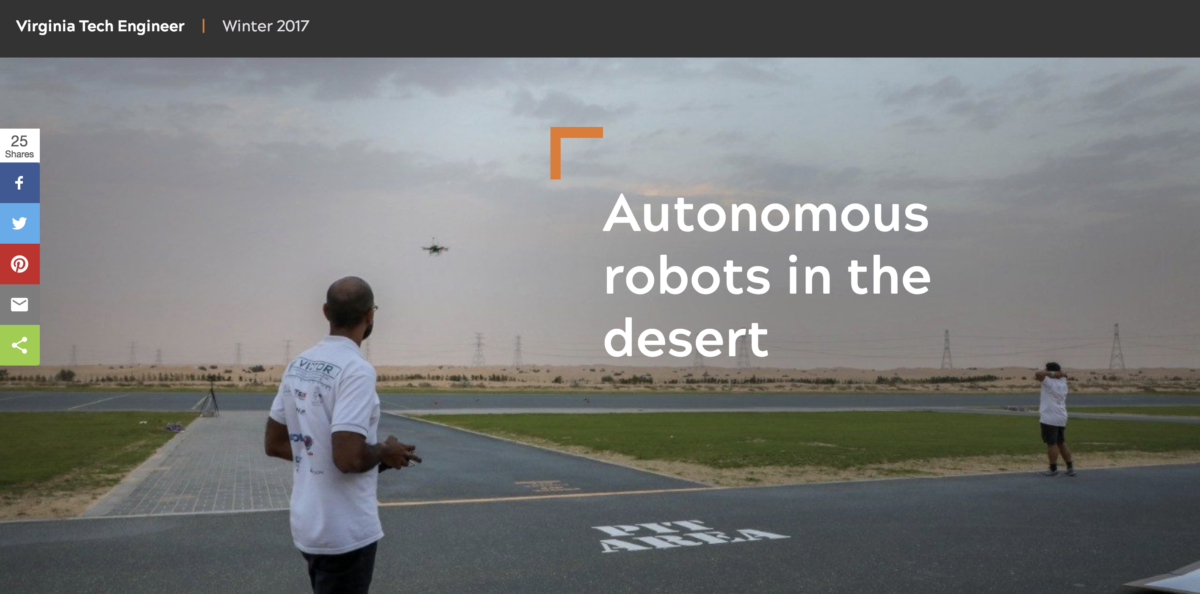Last winter, a team of engineering graduate students regularly ventured out to Virginia Tech’s Kentland Farm. They’d drive past fields of cows and farmland until they reached a small garage and strip of asphalt.
It’s here they’d unload a set of autonomous vehicles: several drones and a ground vehicle. They’d place markers made of tape and tarps on the concrete and set up their laptops and equipment. And then they’d get to testing.
By March, they’d trade the cold winds of a Blacksburg winter for the dry heat of the desert.
Members of this interdisciplinary group, known as Team VICTOR, competed against top universities in the international, inaugural Mohamed Bin Zayed International Robotics Challenge (MBZIRC), held in Abu Dhabi March 16-18, 2017.
The $5 million competition aimed to catalyze the development of autonomous robotics. Virginia Tech’s Team VICTOR was one of 25 teams out of 143 applicants from around the world invited to compete, and one of 15 to be sponsored by Khalifa University, the competition organizer.
The team began preparations a year out, in spring 2016. They were tasked with designing vehicles capable of completing a series of ambitious tasks requiring the use of autonomy.
“MBZIRC introduced a very challenging goal for roboticists, and basically the robots needed to fly autonomously and get to the target in a natural environment,” said Tomonari Furukawa, a professor in the Department of Mechanical Engineering and advisor to Team VICTOR. “This is very, very difficult. We’re not one to lose an opportunity, so we wanted to participate in a challenge.”
Read the full story, see my photos, and watch a video cut together by my video intern using my footage via Virginia Tech Engineer, the College of Engineering’s premier digital magazine
